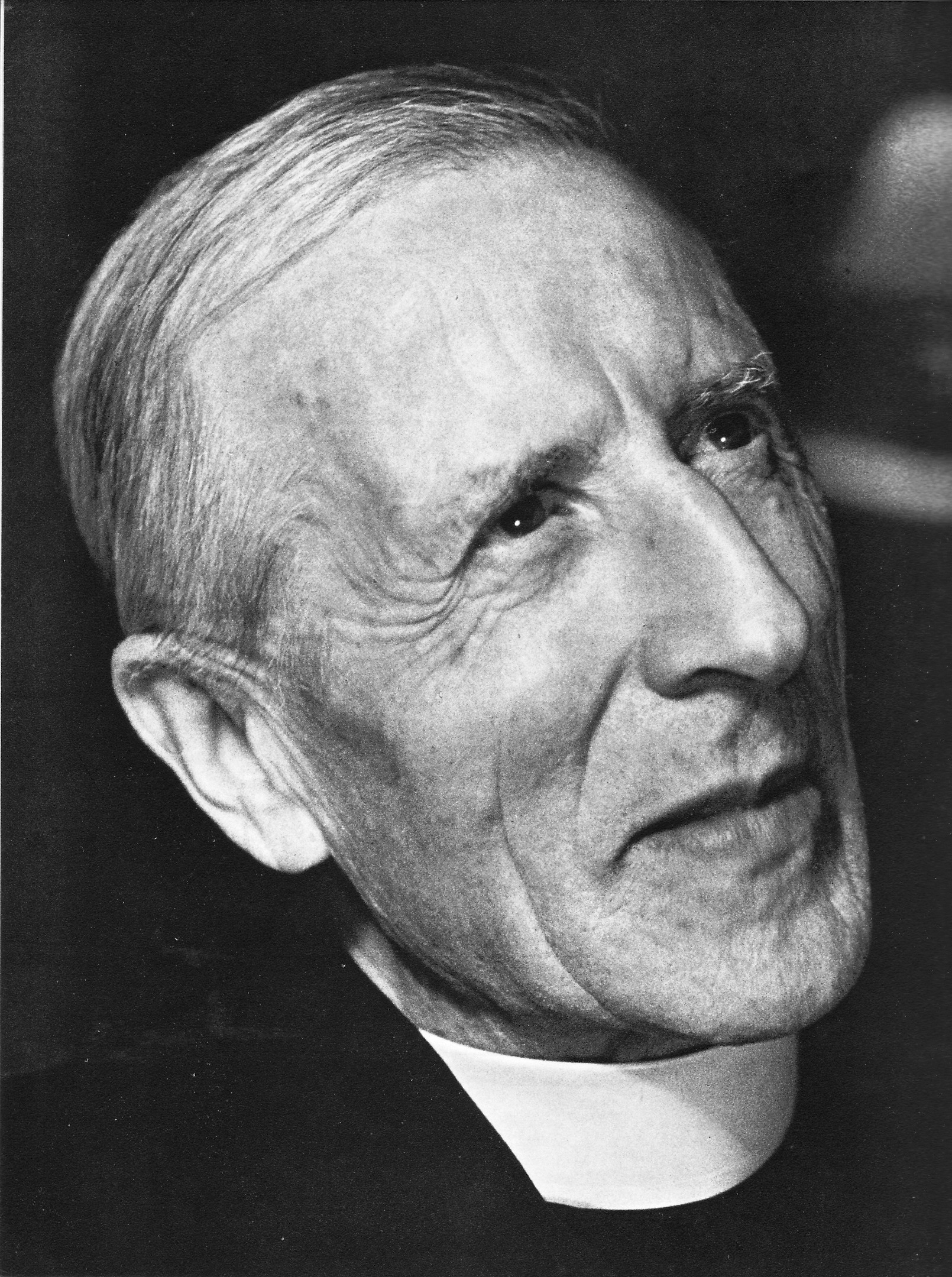citato in Rosemary Altea, Una lunga scala fino al cielo, traduzione di Elena Malossini Fumero, CDE, Milano, 1998
Pierre Teilhard De Chardin frasi celebri
da L'ambiente divino, traduzione di Annetta Dozon Daverio, Fabio Mantovani, Queriniana, 1994
“Tutto l'universo non è che la frangia del mantello di Cristo.”
citato in Mario Canciani, Vita da prete, Mondadori 1991, p. 129
La scienza di fronte a Cristo. Credere nel mondo e credere in Dio
da un articolo pubblicato su Esprit, agosto 1946; raccolto in La scienza di fronte a Cristo
Origine: Consultabile su Disf.org http://disf.org/pierre-teilhard-chardin-cattolicesimo-scienza.
La scienza di fronte a Cristo. Credere nel mondo e credere in Dio
La scienza di fronte a Cristo. Credere nel mondo e credere in Dio
La scienza di fronte a Cristo. Credere nel mondo e credere in Dio
Pierre Teilhard De Chardin: Frasi in inglese
pp. 70–71 https://archive.org/stream/ActivationOfEnergy/Activation_of_Energy#page/n65/mode/2up
Activation of Energy (1976)
“At the heart of our universe, each soul exists for God, in our Lord.”
The Divinisation of Our Activities, p. 56
The Divine Milieu (1960)
Letter from Cape Town to Father General, Jean-Baptiste Janssens (12 October 1951)
“The future is more beautiful than all the pasts.”
Letter (5 September 1919), in The Making of a Mind: Letters from a Soldier-Priest 1914–1919
“We are like soldiers who fall during the assault which leads to peace.”
The Divinisation of Our Activities, p. 85
The Divine Milieu (1960)
The Divinisation of Our Activities, p. 72
The Divine Milieu (1960)
pp. 273, 287–289 https://archive.org/stream/ThePhenomenonOfMan/phenomenon-of-man-pierre-teilhard-de-chardin#page/n137/mode/1up/,
The Phenomenon of Man (1955)
On Christian Asceticism, p. 100
The Divine Milieu (1960)
“The world can no more have two summits than a circumference can have two centres.”
Epilogue, In Expectation of the Parousia, p. 154
The Divine Milieu (1960)
Letter from Cape Town to Father General, Jean-Baptiste Janssens (12 October 1951)
Preface, p. 43
The Divine Milieu (1960)
Man's Place in Nature https://archive.org/stream/MansPlaceInNature/Mans_Place_in_Nature#page/n101/mode/2up (1966), p. 100
A Sketch of a Personalistic Universe (1936)
“God is inexhaustibly attainable in the totality of our action.”
The Divinisation of Our Activities, p. 63
The Divine Milieu (1960)
pp. 193–195 https://archive.org/stream/ChristianityAndEvolution/Christianity_and_Evolution#page/n191/mode/2up
Christianity and Evolution (1969)
The Divine Milieu, p. 128
The Divine Milieu (1960)
